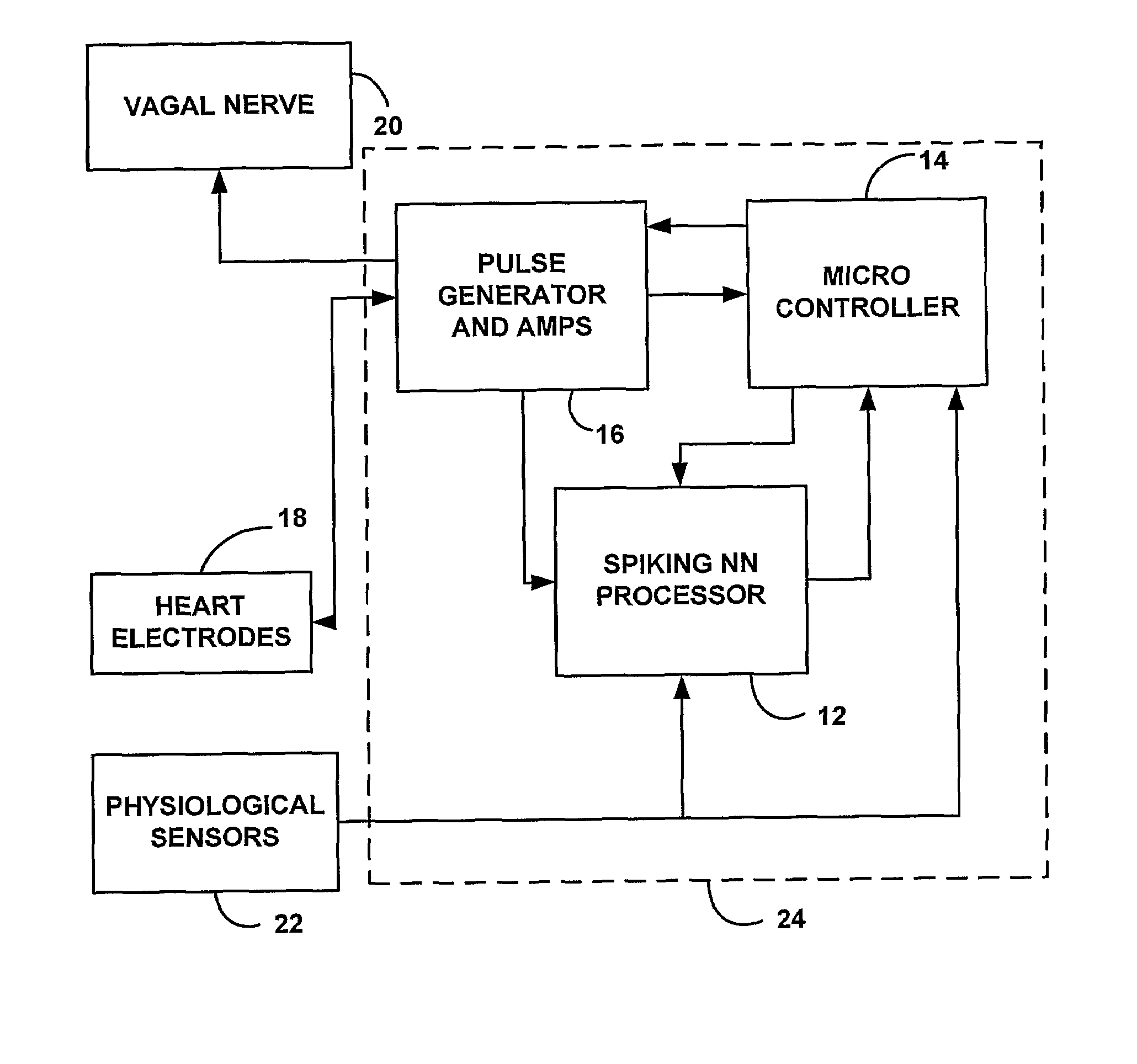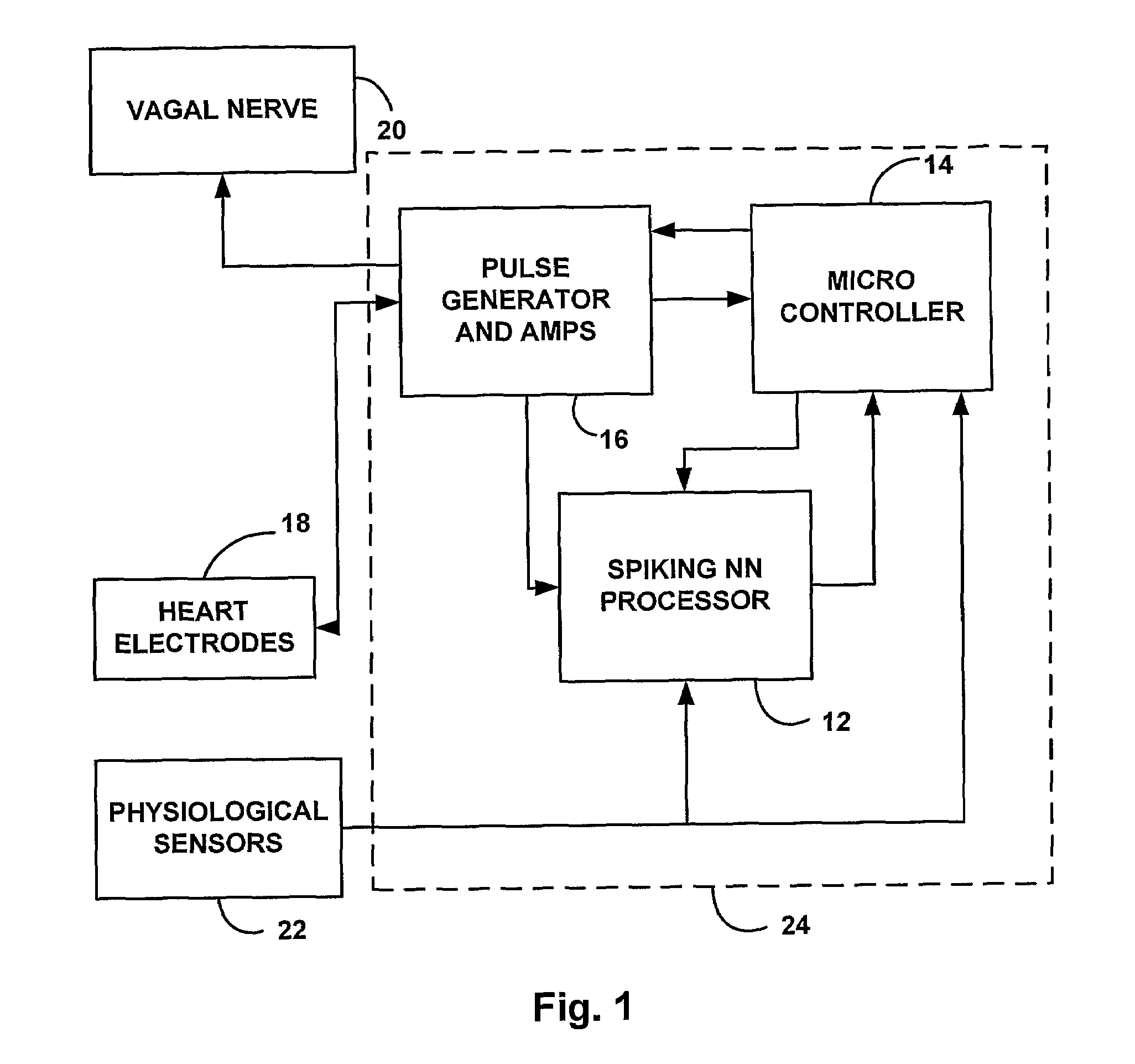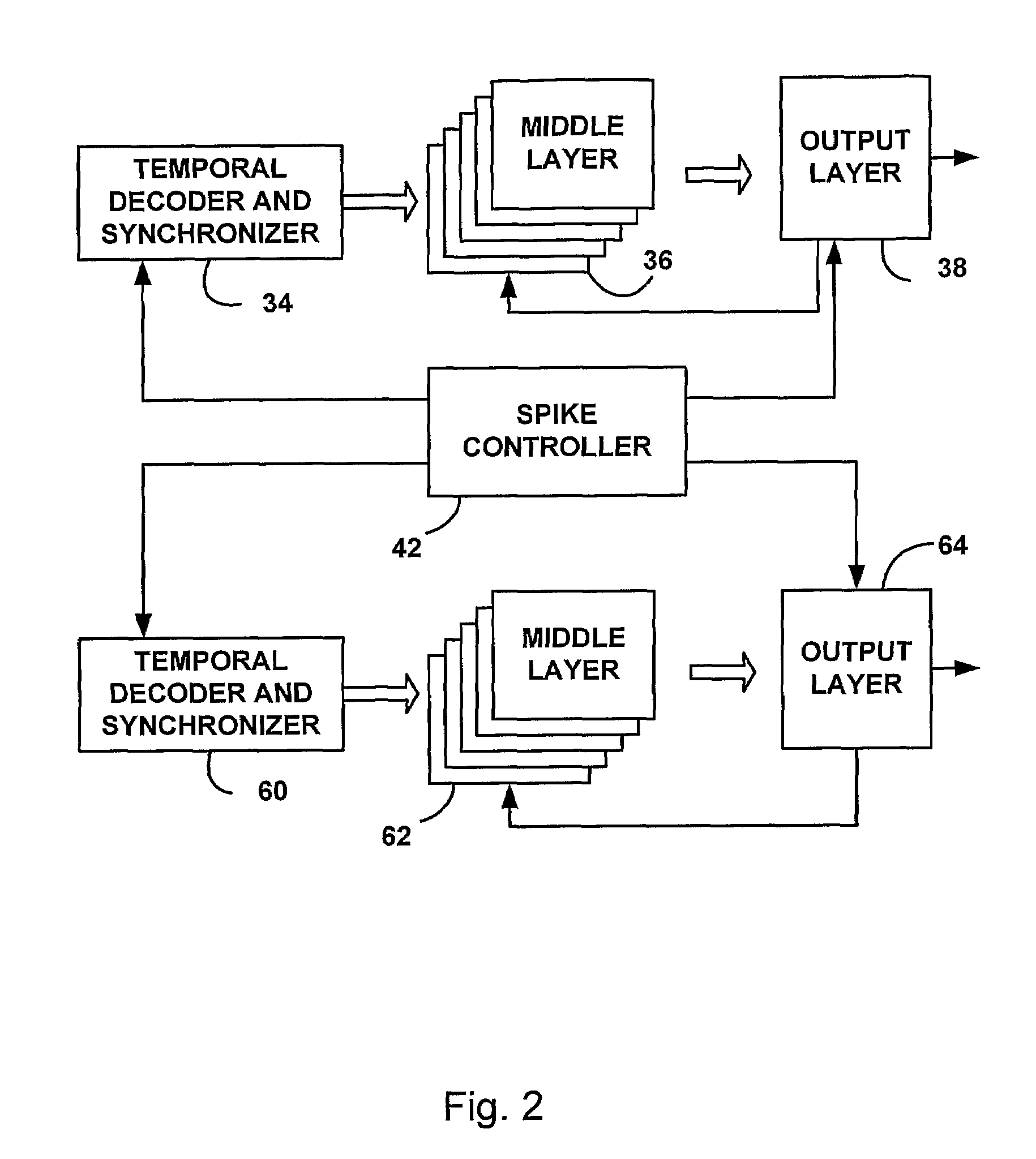Adaptive cardiac resyncronization therapy and vagal stimulation system
a technology of vagal stimulation and cardiac resynchronization therapy, which is applied in the field of adapting cardiac resynchronization therapy devices and vagal stimulators, can solve the problems of cardiac pacemakers not being able to slow down the natural atrial rate, inability of the heart to deliver enough blood, and congestive heart failur
- Summary
- Abstract
- Description
- Claims
- Application Information
AI Technical Summary
Benefits of technology
Problems solved by technology
Method used
Image
Examples
Embodiment Construction
[0016]The present invention employs an implanted adaptive CRT system as described in a co-pending patent application by the same inventor published in WO 2005 / 007075. In the disclosed invention, both AV delay and the VV interval change dynamically in response to hemodynamic inputs from sensors in a closed loop system such that the stroke volume at a given heart rate is maximized online and continuously. This system therefore implies a feedback control. As described in FIG. 1 to which reference is now made, the device of the present invention is a combined adaptive CRT and vagal stimulator device. The spiking neural network processor (NNP) 12 includes the learning module, working as a slave processor of the micro-controller 14. A pulse generator and operational amplifiers 16, is the analogue interface to the electrodes implanted in the heart 18 of the patient, including the biventricular pacemaker, the right atria lead, right ventricular lead and left ventricular lead. An interface t...
PUM
 Login to View More
Login to View More Abstract
Description
Claims
Application Information
 Login to View More
Login to View More - R&D
- Intellectual Property
- Life Sciences
- Materials
- Tech Scout
- Unparalleled Data Quality
- Higher Quality Content
- 60% Fewer Hallucinations
Browse by: Latest US Patents, China's latest patents, Technical Efficacy Thesaurus, Application Domain, Technology Topic, Popular Technical Reports.
© 2025 PatSnap. All rights reserved.Legal|Privacy policy|Modern Slavery Act Transparency Statement|Sitemap|About US| Contact US: help@patsnap.com



